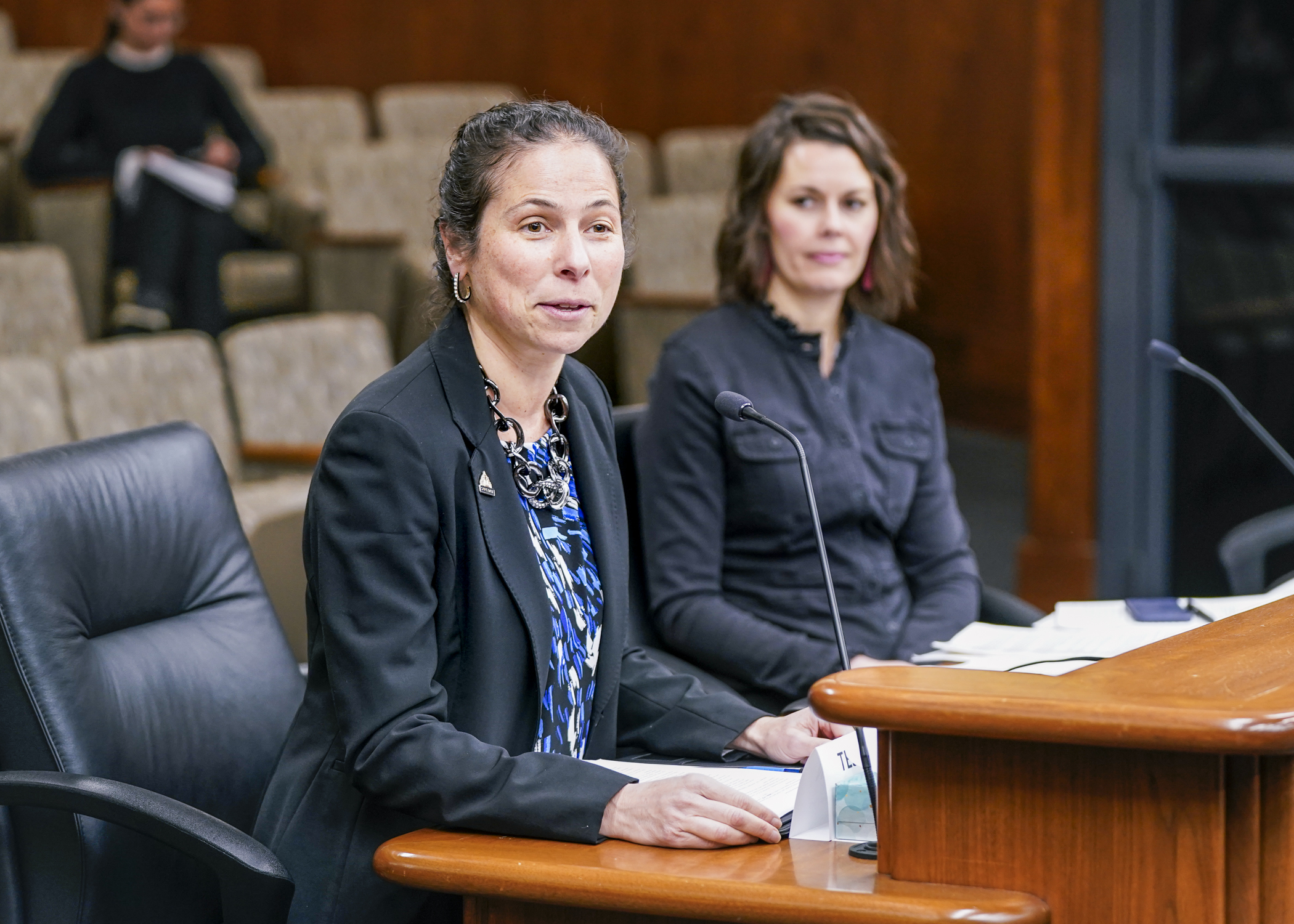House labor committee advances plan to give all Minnesotans paid sick leave

Should employers be mandated to provide sick days for all workers in Minnesota? That was the issue up for debate in the House Labor and Industry Finance and Policy Committee Tuesday.
As of now, nearly two-thirds of Minnesota workers have access to paid sick time. If enacted, HF19 would extend this benefit to the rest of the workforce.
Following a spirited discussion, the bill was approved on an 8-5 party-line vote. Its next stop is the House Judiciary Finance and Civil Law Committee.
According to the bill’s sponsor, Rep. Liz Olson (DFL-Duluth), this measure is urgently needed.
“More than a third of working people in our state make the terrible choice between caring for themselves or loved ones in need, and loss of wages or even employment” because of the lack of paid sick leave, Olson said.
As spelled out in the bill, all Minnesota workers would become eligible for what is termed “earned sick & safe time” upon logging 80 hours on the job. Paid sick time would be accrued at the rate of one hour for every 30 hours worked; up to 48 hours could be accrued per year. Any unused hours would be available to be rolled over to a new calendar year, with a maximum of 80 hours to be banked at any given time. These hours would be paid at the same rate as normal hours worked.
Olson also noted that those numbers would be the floor and nothing in the bill would prohibit employers from offering more generous benefits to their workers.
Earned sick and safe time could be utilized by workers for multiple reasons. They include: needing treatment or care for physical or mental illness; absence owing to domestic abuse, sexual assault, or stalking; and quarantine due to exposure to an infectious disease. An employee could claim paid time off if these situations, applied to either themselves or to a family member.
The Department of Labor and Industry would be granted mechanisms for enforcement, most notably the ability to levy fines on employers who failed to abide by the terms of the proposed legislation. Penalties could be as high as $10,000 per violation.
Supporters of the measure painted the issue as one of fairness.
“No one should have to choose between their health and their paycheck,” Carla Gomez, a janitor with Local 26 of the Service Employees International Union, said through a translator. In her view, it is unfair that some people can stay home while sick and others cannot.
A major point of contention during the hearing was the potential impact of the bill on the economic fortunes of small businesses across the state.
“This will increase workforce challenges and increase costs for them,” said John Reynolds, state director for the National Federation of Independent Business. “There’s no pot of gold at these small businesses in the back room. A lot of them are stretched to the max after the last three years.”
His concerns were echoed by Joe Piket, a co-owner of two child care centers. Piket argued the proposal’s scope was too far-ranging, believing that earned sick and safe time should not be mandated for part-time workers, nor available for use under so many varied circumstances.
As many speakers pointed out, earned sick and safe time has already been passed in four municipalities – Minneapolis, St. Paul, Duluth, and Bloomington. Testimony from Rebecca Noecker, a St. Paul councilmember, highlighted the effects the policy has had since its passage in 2017.
“We have never looked back,” she said. She claimed the concerns expressed in the committee have not come to fruition and the policy has especially benefited front-line workers who live paycheck to paycheck.
Rep. Joe McDonald (R-Delano) took exception to several provisions of the bill, unsuccessfully offering four amendments. He proposed extending the benefit to only full-time employees; exempting businesses with fewer than 50 employees from the mandate; narrowing who an employee could consider as family when claiming time off; and instituting a maximum fine of $1,000 per violation.
The family member definition amendment failed on a split-voice vote; the others were all defeated via roll-call votes along party lines.
Related Articles
Search Session Daily
Advanced Search OptionsPriority Dailies
Speaker Emerita Melissa Hortman, husband killed in attack
By HPIS Staff House Speaker Emerita Melissa Hortman (DFL-Brooklyn Park) and her husband, Mark, were fatally shot in their home early Saturday morning.
Gov. Tim Walz announced the news dur...
House Speaker Emerita Melissa Hortman (DFL-Brooklyn Park) and her husband, Mark, were fatally shot in their home early Saturday morning.
Gov. Tim Walz announced the news dur...
Lawmakers deliver budget bills to governor's desk in one-day special session
By Mike Cook About that talk of needing all 21 hours left in a legislative day to complete a special session?
House members were more than up to the challenge Monday. Beginning at 10 a.m...
About that talk of needing all 21 hours left in a legislative day to complete a special session?
House members were more than up to the challenge Monday. Beginning at 10 a.m...